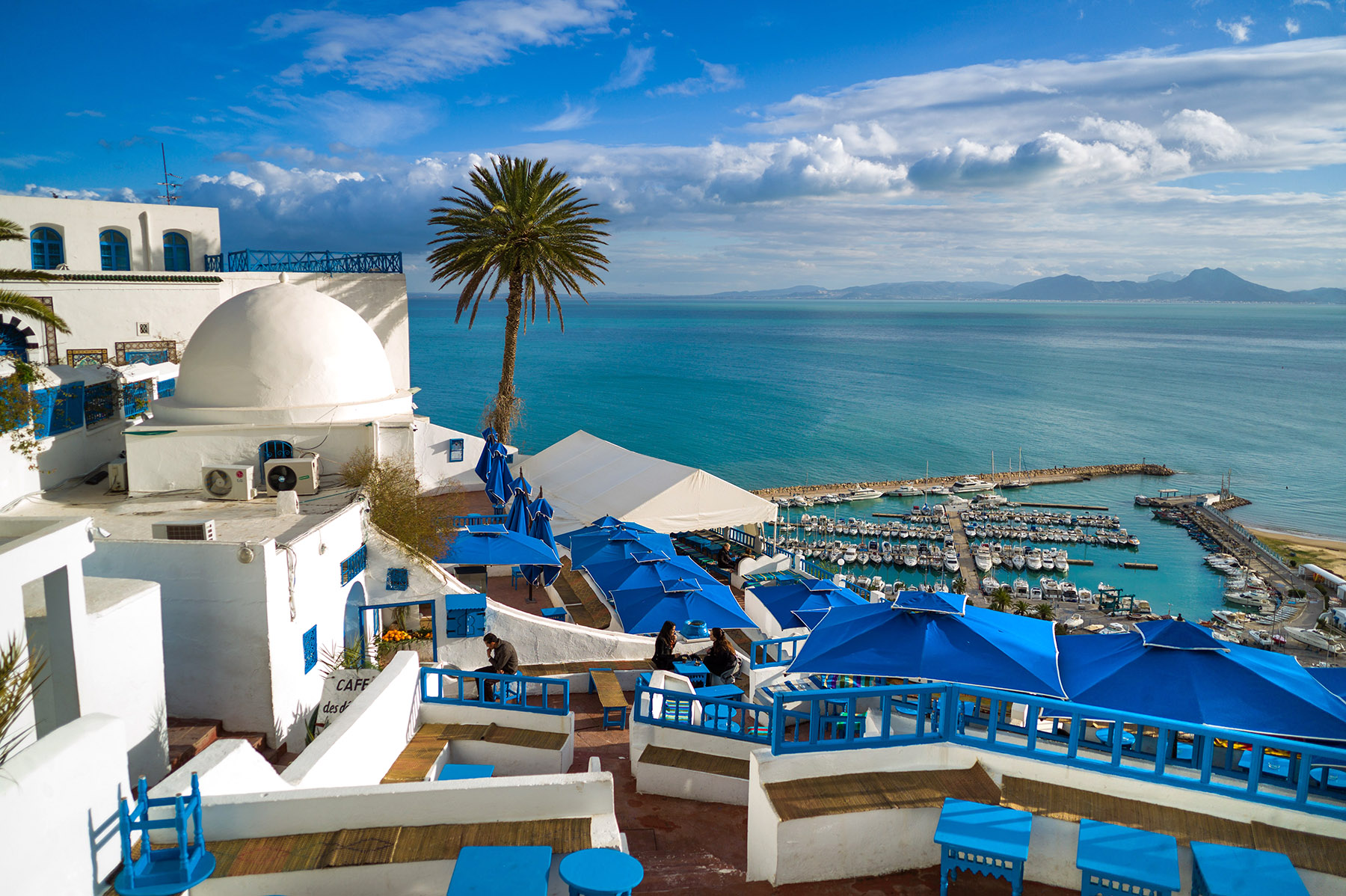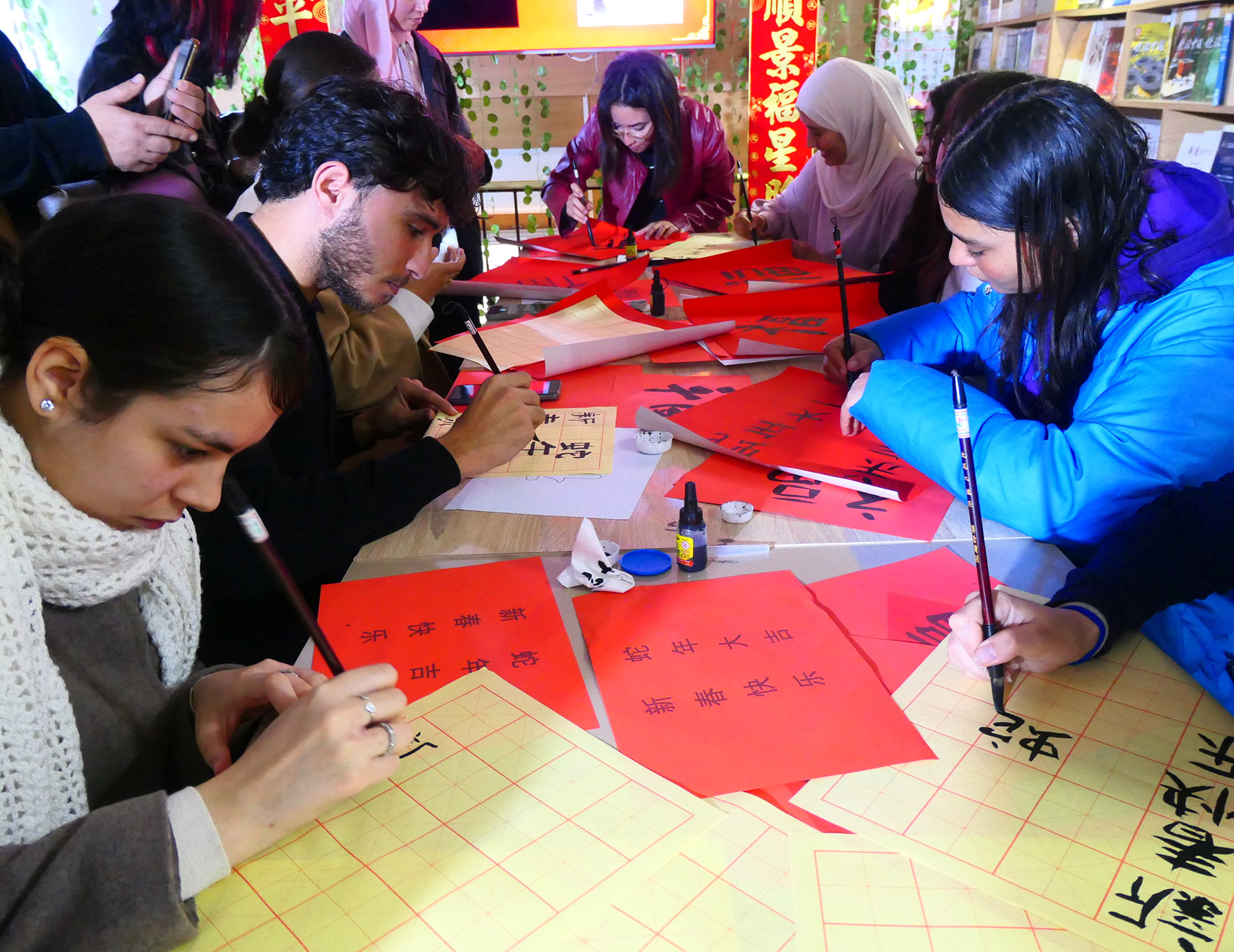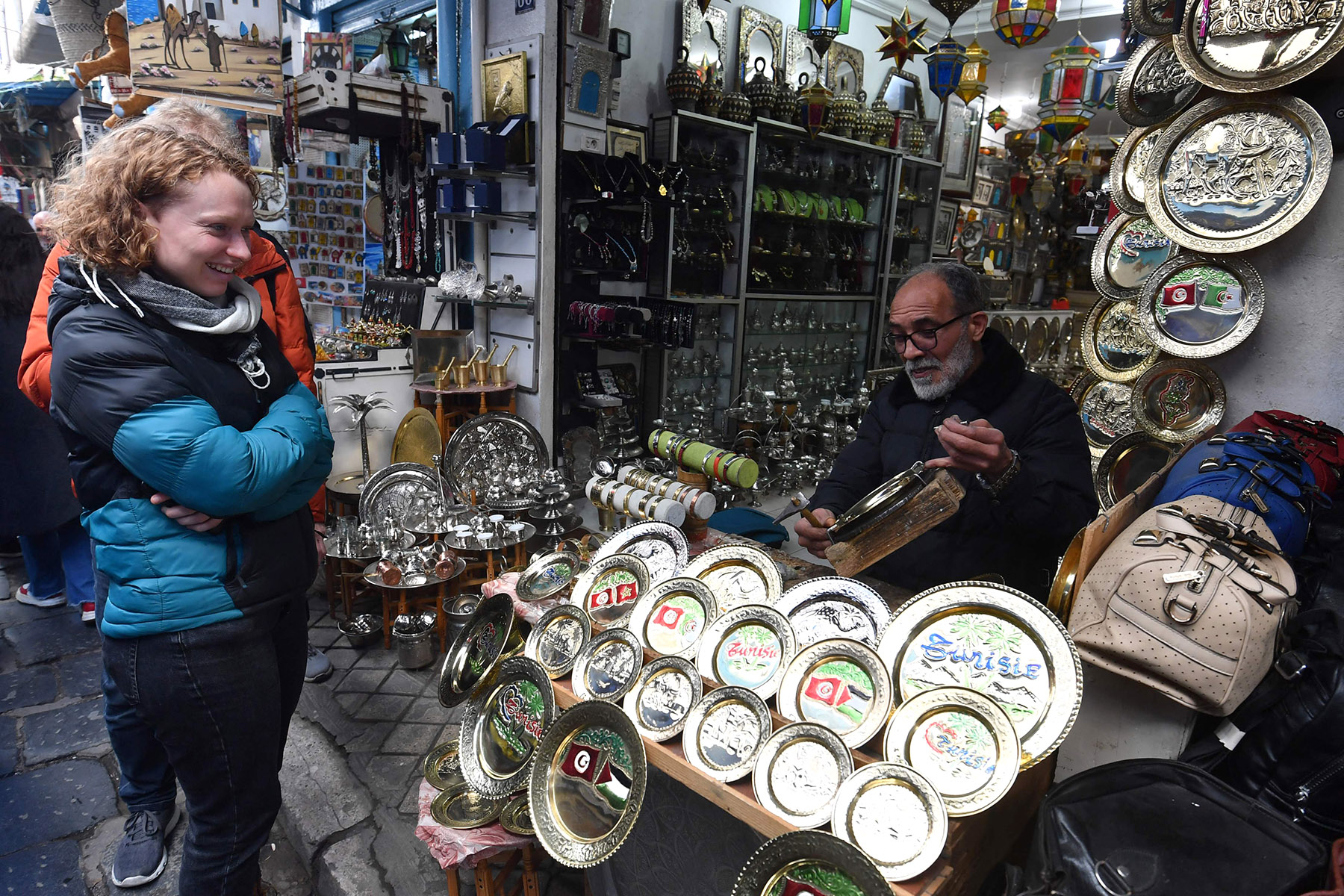China and Tunisia have created an enduring legacy through vibrant artistic and trade exchanges across centuries, Xu Lin reports.

China's over 5,000-year civilization, with its diverse elements that have formed a unity, and Tunisia's layered heritage — rooted in indigenous Berber traditions and overlaid with Phoenician, Roman and Arab influences — reveal both parallels and distinctions.
The ancient Silk Road, across land and over high waves, linked China and Africa, creating an enduring legacy through vibrant cultural and trade exchanges.
Tunisia's strategic position in the Mediterranean made it a crossroad of civilizations, evolving into a cultural mosaic.
Many enlightened thinkers from Tunisia have contributed to human civilization. Ibn Khaldun, who lived between the 14th and 15th centuries, was a Tunisian scholar regarded as a foundational figure in sociology and history. Fatima Al-Fihriya, born in Tunisia, founded Al-Qarawiyyin University, one of the first universities worldwide, in 859.
READ MORE: Chinese visitors answer Africa's call of the wild
"China and Tunisia possess long histories, with cultural diversity as their defining characteristic, endowing the two nations with the capacity for cultural inclusiveness and intercultural dialogue," says Wang Guangda, secretary-general of the China-Arab Research Center on Reform and Development and a professor at Shanghai International Studies University.
According to him, China and Tunisia both hail from deep-rooted agricultural civilizations shaped by waters. China's Yellow and Yangtze rivers have fostered small-scale farming with a gendered division of labor, while Tunisia's Medjerda River has developed irrigation-based agriculture along the Mediterranean coast.
According to Wang, both nations actively promote civilizational bilateral exchanges and cooperation frameworks at the governmental level. Meanwhile, people-to-people exchanges thrive, with Tunisian Sinologists, translators and publishers actively advancing Chinese cultural dissemination.
Civilizational exchanges between the two nations can be traced back across millennia.
By the 9th century BC, the Phoenicians, with their maritime prowess, had become one of the greatest trading powers thanks to their vast trade network that spanned the Mediterranean and beyond.
"Chinese goods could have been transported via the Silk Road through Phoenician-controlled commercial hubs to the Mediterranean," says Huang Hui, vice-dean of the School of Foreign Studies, University of International Business and Economics, and director of the university's Tunisia research center.

During Roman rule, North Africa, including today's Tunisia, was a vital trading hub and granary for the empire. Historical records show that China's Han Dynasty (206 BC-AD 220) already had trade with the empire. According to Huang, from the 9th to 12th centuries, Arabs controlled the sea routes used for trade between the Indian Ocean and the Mediterranean, and Chinese goods reached North Africa through the Red Sea.
Tunisia is among the first Arab and African countries to offer Chinese language majors at its universities. Chinese language courses are also available at some high schools. In 2018, Tunisia's first Confucius Institute opened at the Higher Institute of Languages at the University of Carthage.
"Tunisia boasts a robust education system with notable strengths, providing a solid foundation for Sino-Tunisian cooperation in educational and cultural fields," Huang says.
"For example, the China-aided International Diplomatic Academy of Tunis and Ben Arous Sports and Cultural Center for Youth are hallmark achievements in high-quality Belt and Road cooperation between the two nations."
From 2017 until now, the University of International Business and Economics where Huang works has received over 100,000 international students from its strategic partner, the University of Carthage, and also sent Chinese students there for further studies. She says both universities work with each other on academic research in area studies, which boosts Sino-Tunisian relations.
She believes bilateral efforts to cultivate talent in both nations should shift from language education to multidisciplinary collaboration. "We should train more Sinologists and specialists in Arabic studies, and expand talent development with emerging needs in high-tech sectors, economics, finance and management."
In 2023, China and Tunisia signed a cooperation agreement on archaeological investigation, excavation and protection of an ancient Roman site in Tunisia.
According to Tunisian Ambassador to China Adel Elarbi, cooperative archaeological programs, rooted in the framework of the Belt and Road Initiative, have yielded significant advancements in cultural heritage preservation and bilateral collaboration. He says Chinese and Tunisian archaeologists use cutting-edge technologies like three-dimensional scanning and remote sensing in excavations, and adopt China-developed artificial intelligence tools to analyze degradation patterns of cultural artifacts.
He adds that plans include expanding underwater archaeology in Tunisia's coastal regions, leveraging China's expertise in maritime heritage preservation.

Meanwhile, the country's rich archaeological heritage, such as the Phoenician-founded Carthage, together with the Sahara Desert's otherworldly dunes and scenic Mediterranean coastline, is drawing more tourists. In 2023, Tunisia introduced a visa-free policy for Chinese citizens, who are required to present hotel reservations and air tickets before entering the country. In 2024, about 24,000 Chinese travelers visited Tunisia, and it's expected that the number will rise to over 30,000 this year, according to the country's tourism authorities.
"Tunisia remains deeply invested in nurturing Sino-Tunisian cultural and tourism relations. We view the Chinese market as a cornerstone of our diversification and growth strategy in global tourism," says Anouar Chetoui, chief representative of the Tunisian National Tourist Office in China. He says the tourist office has partnered with online Chinese travel agencies to promote Tunisian tourism products, and also encouraged tourists and bloggers to share their immersive experiences on social media.
UnionPay bank cards are accepted at more hotels, restaurants and shops. Tunisia is expanding Mandarin-language training for tourism professionals and providing signage, brochures and menus in Chinese at key tourist hubs.
Chetoui says Chinese travelers are more independent, digitally savvy, and focused on authentic cultural experiences. More tourists opt for personalized and flexible itineraries that align with their interests.
"Tunisia is well-positioned to meet these expectations. Our heritage attractions offer a deep dive into ancient civilizations and architectural marvels."
Miao Luyong, an influencer with over 2.09 million fans on social media platform Sina Weibo, recounts his indelible 10-day trip to Tunisia in December.
ALSO READ: China, Tunisia establish strategic partnership
The Amphitheatre of El Jem, a UNESCO World Heritage Site built in the 3rd century, is one of the largest and best-preserved Roman arenas in the world. Designed to hold up to 35,000 spectators, its towering sandstone arches and labyrinth of underground passages known as hypogeum still captivate today's tourists.
"I stood surrounded by ancient columns and walls, mesmerized by the arena's grandeur. I could almost hear the roar of crowds and the clash of gladiators long gone. It struck me to realize that around the same time, China's Han Dynasty was exporting its goods to the Mediterranean via the Silk Road," Miao says.
"Tunisians are very hospitable. They greeted me warmly in Chinese saying 'nihao' (hello)."
At a mosque square, a cluster of children cautiously approached him — their eyes wide with the rarity of Asian visitors. After whispering among themselves, they mustered the courage to draw nearer, swarming around to ask him questions about China in English.
"They were timid and shy at first, but gradually started a conversation when they realized I'm quite friendly. I wish they will visit China when they're grown up," he says.
Feng Minghui contributed to this story.
Contact the writer at xulin@chinadaily.com.cn


